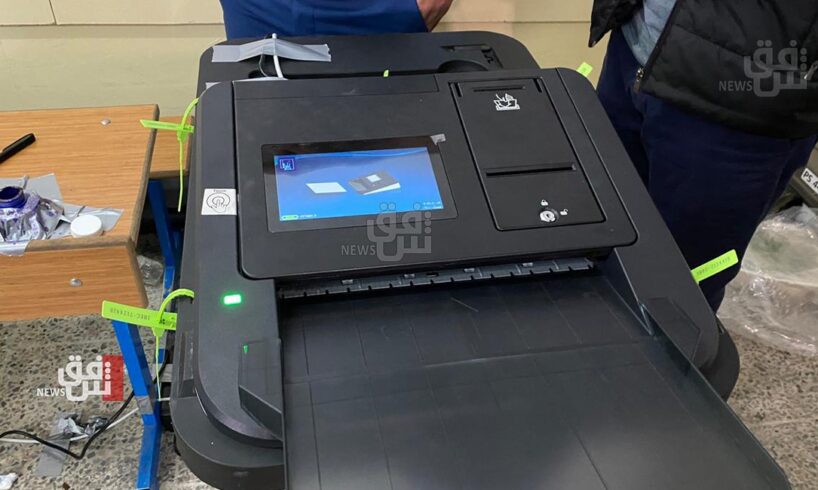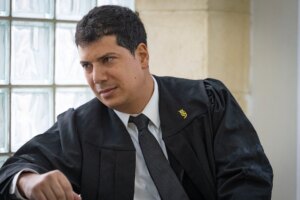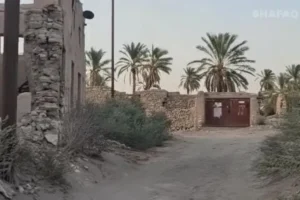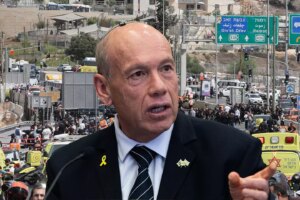
2025-09-23T16:57:12+00:00
font
Enable Reading Mode
A-
A
A+
Shafaq News
On the eve of Iraq’s upcoming parliamentary elections, and
after a prolonged period of political withdrawal, head of the Patriotic Shiite
Movement (PSM) Muqtada al-Sadr has publicly restated the conditions for his
return to the political scene, declaring that “the real alternative to boycott
is comprehensive reform and uprooting the ruling class.”
The statement, delivered through his confidant Saleh
Mohammed al-Iraqi, known as “the Leader’s Minister,” has reopened a wave of
speculation about the possibility of the PSM (formally labeled as The Sadrist) re-entering
the political arena — or whether its continued absence remains a strategic
decision aimed at destabilizing the electoral map ahead of the November vote.
Beyond Familiar Rhetoric
Analysts argue that al-Sadr’s latest message is not merely a
repetition of past positions. While rooted in longstanding criticism of Iraq’s
political class, the statement introduces explicit demands that touch the very
structure of the post-2003 system. Yet many view those conditions as
politically unrealistic, raising questions about their purpose — and whether
they serve as pretexts to maintain political distance while still shaping the
agenda.
Calls
for Al-Sadr’s return have intensified in recent months, as many political
actors believe their absence has skewed parliamentary balance and diminished
opposition oversight.
A Silenced Opposition
Independent lawmaker Haitham al-Fahd told Shafaq News that
al-Sadr’s withdrawal has left a visible gap in the political oversight. “Their
absence eliminated the voice of the opposition,” he vowed, adding that “this
has allowed for the concentration of power and unchecked support for the
government within parliament, virtually neutralizing its monitoring role.”
Al-Fahd emphasized that the PSM had represented a critical
counterweight within the legislature — both in governance and in opposition.
Their return, he argued, could reintroduce equilibrium and revive meaningful
parliamentary scrutiny.
Political Calls and Disputed Legitimacy
Despite long-standing tensions, former Prime Minister Nouri
al-Maliki and his State of Law Coalition have repeatedly called on the PSM to
return. Coalition member Imran al-Karkoshi told Shafaq News that elections are
“the only legitimate mechanism for change in Iraq — both a right for the people
and a duty upon them.”
In response to al-Sadr’s demand for leadership overhaul,
al-Karkoshi defended the current political elite: “These leaders are publicly
chosen, not individual imposition. No single faction can erase them at will.”
Strategy, Not Surrender
According to political analyst Mujashaa al-Tamimi, al-Sadr’s
message is better understood as a calculated political maneuver. “This is not a
passive withdrawal. It’s a strategic pressure tactic,” he told Shafaq News,
clarifying that “al-Sadr’s demands expose the failure of ruling forces to meet
the expectations of both the religious authority and the Iraqi street.”
Al-Tamimi added that the PSM base remains a formidable
electoral force with proven capacity to mobilize both in protests and at the
polls. Should genuine reform materialize — including a change in dominant
political faces — Iraq may find a rare opportunity to recalibrate its political
balance. But if gridlock continues, the crisis is likely to persist.
Unrealistic Demands?
Not all analysts see al-Sadr’s position as politically
actionable. Sabah al-Ukaili pointed out to Shafaq News that removing entrenched
political leadership — especially those in place since 2003 — is “virtually
impossible under the current system.” However, he noted the possibility of
consensus on secondary demands, such as anti-corruption efforts and service
delivery improvements.
Al-Ukaili warned that the ongoing boycott could dampen voter
turnout. “The boycott campaign has begun to expand beyond the PSM base and into
broader public sentiment,” he said, describing it as a growing threat to the
election’s credibility — especially as political parties remain determined to
hold the vote on time.
Manaf al-Moussawi, head of the Baghdad Center for Strategic
Studies, doubts that al-Sadr will rejoin the elections
in practice. “The candidate registration period is over, and the vote is near,”
he told Shafaq News, explaining that “his latest statements aim to clarify the
rationale behind the boycott, not hint at a political comeback.”
Al-Sadr had formally declared in March 2025 that he would
not participate in the elections, citing the persistence of “corruption and the
corrupt,” and warning that Iraq was “breathing its last.” His original exit
came in June 2022, when he ordered all his 73 MPs — the largest bloc at the
time — to resign in protest. That decision followed a power struggle with
Shiite rivals now unified under the Coordination
Framework.
What’s Next?
While al-Sadr’s movement remains absent from the official
political process, its influence continues to shape national discourse. By
laying down conditions most view as non-negotiable, he exerts pressure from
outside the system — reminding rivals and supporters alike that his hand
remains on the lever, even if not on the ballot.
Written and edited by Shafaq News staff.





